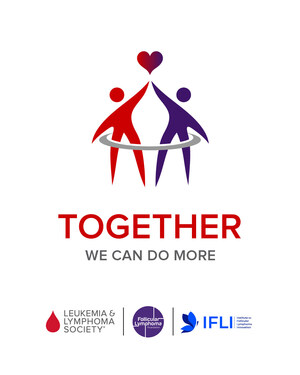Study Commissioned by The Leukemia & Lymphoma Society Shows Benefits of Limiting Out-of-Pocket Costs for Patients Purchasing Prescription Drugs
WHITE PLAINS, N.Y., March 9, 2015 /PRNewswire-USNewswire/ -- A new study finds that capping the cost-sharing for prescription drugs on individual policies in the health insurance marketplace would reduce patients' annual out-of-pocket healthcare spending, and have a small effect on insurance premiums while allowing insurers to remain compliant with the law.
This new study, which The Leukemia & Lymphoma Society (LLS) commissioned from Milliman, Inc., examines the impact of imposing dollar limits on out-of-pocket costs for patients who purchase their insurance through health exchanges established under the Affordable Care Act (ACA). The study measures how these dollar limits would reduce patients' out-of-pocket costs, the implication for insurers that must meet Actuarial Value Calculator requirements, and the impact on premiums for these plans. The study finds that the majority of benefit plan options examined can be accommodated with either no adjustments to other benefit features or with minor adjustments.
"The advance of innovative therapies to treat cancer diagnoses has had a demonstrable beneficial impact on outcomes for patients," states Louis J. DeGennaro, Ph.D., president and CEO of LLS. "Our role is to advocate for patients, and help them navigate the financial challenges they face, including high cost-sharing for therapies. This study helps make the case for placing limits on out-of -pocket costs for patients that would relieve their financial burden without a significant impact to insurers.
LLS, the world's largest voluntary health organization dedicated to finding cures for blood cancer patients and ensuring access to treatments, has long played a significant role in efforts to control high out-of-pocket prescription costs for blood cancer patients. LLS advocates for state and federal legislation to ensure patients can get access to the life-saving cures that LLS has helped to advance.
About the Study
The study analyzed the effect of different levels of caps on prescription drugs: $100; $150; and $200 per 30-day supply, as well as an annual maximum set at 20% of the total out-of-pocket maximum. The study used examples of actual exchange plans found in the market to model the alternative designs.
The study finds that all four potential benefit design changes would reduce patient cost-sharing while the actuarial value would still comply with the requirements. The one exception would be in a modeled bronze level insurance plan, which would require further benefit design changes to keep the plan in compliance with actuarial values.
In addition, the study found that most of the caps modeled could be made with premium impacts under 0.5% in some cases with adjustments of $5 or less to other copayments. Again, the bronze plans remain the exception, where caps would need to be higher to keep premium increases nominal.
The full study can be viewed by clicking this link.
About The Leukemia & Lymphoma Society
The Leukemia & Lymphoma Society ® (LLS) is the world's largest voluntary health agency dedicated to blood cancer. The LLS mission: Cure leukemia, lymphoma, Hodgkin's disease and myeloma, and improve the quality of life of patients and their families. LLS funds lifesaving blood cancer research around the world, provides free information and support services, and is the voice for all blood cancer patients seeking access to quality, affordable, coordinated care.
Founded in 1949 and headquartered in White Plains, NY, LLS has chapters throughout the United States and Canada. To learn more, visit www.LLS.org. Patients should contact the Information Resource Center at (800) 955-4572, Monday through Friday, 9 a.m. to 9 p.m. ET.
Contact: Andrea Greif
Senior Director of Communications
(914)821-8958 (p)
914)772-3027 (c)
[email protected]
SOURCE The Leukemia & Lymphoma Society
Related Links
WANT YOUR COMPANY'S NEWS FEATURED ON PRNEWSWIRE.COM?
Newsrooms &
Influencers
Digital Media
Outlets
Journalists
Opted In






Share this article